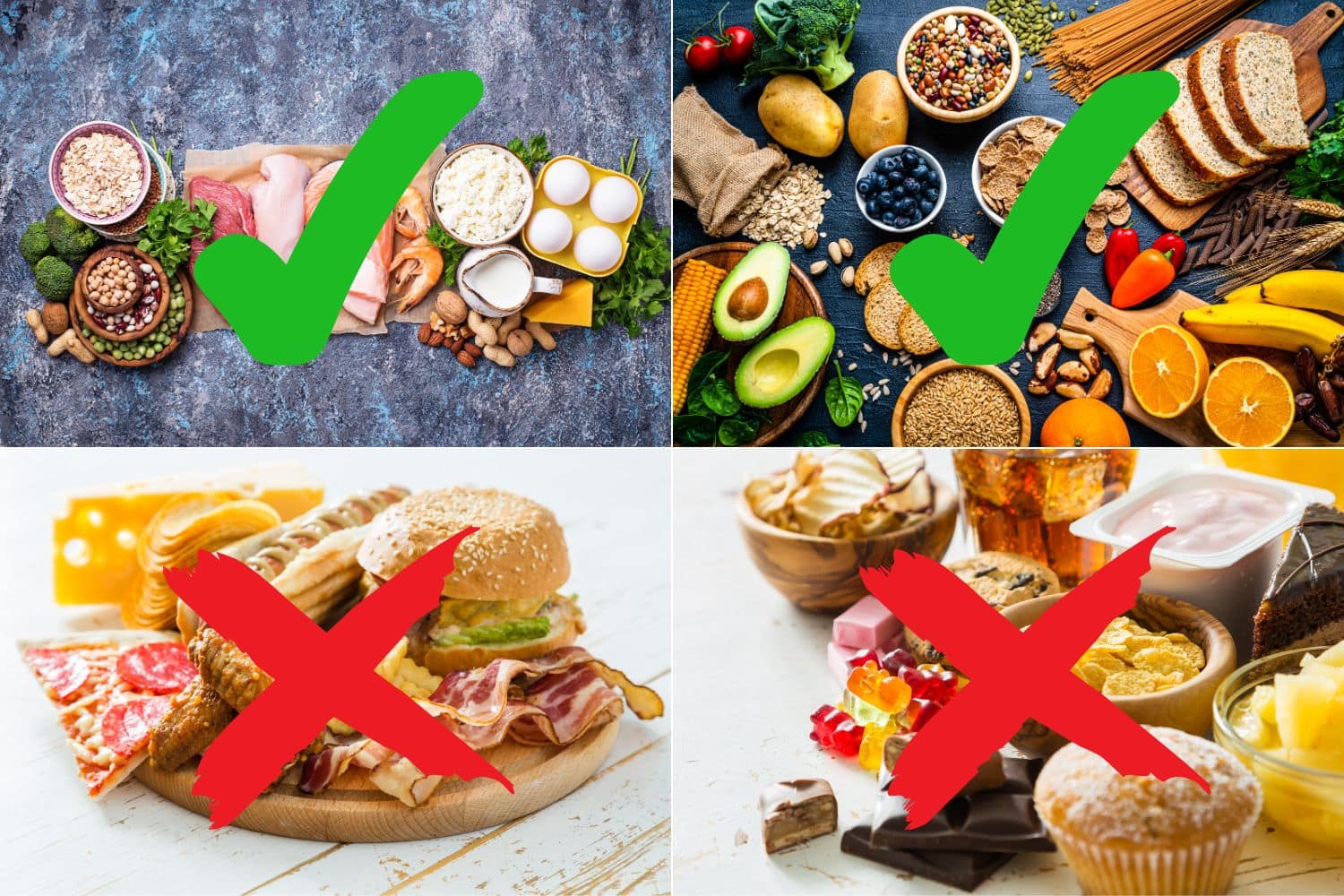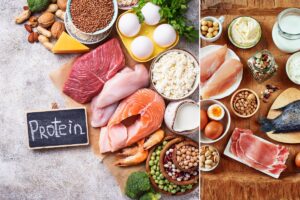For the general public, eating healthily isn’t all that difficult, although it does require some mindful effort. Supporting a healthy lifestyle requires the tracking of only four main nutritional numbers.
Healthy Nutrition Basics: Four Important Nutrients To Track
The four nutrients I recommend tracking, or at least be aware of, are:
- Protein
- Fiber
- Refined (added) sugar
- Saturated fat
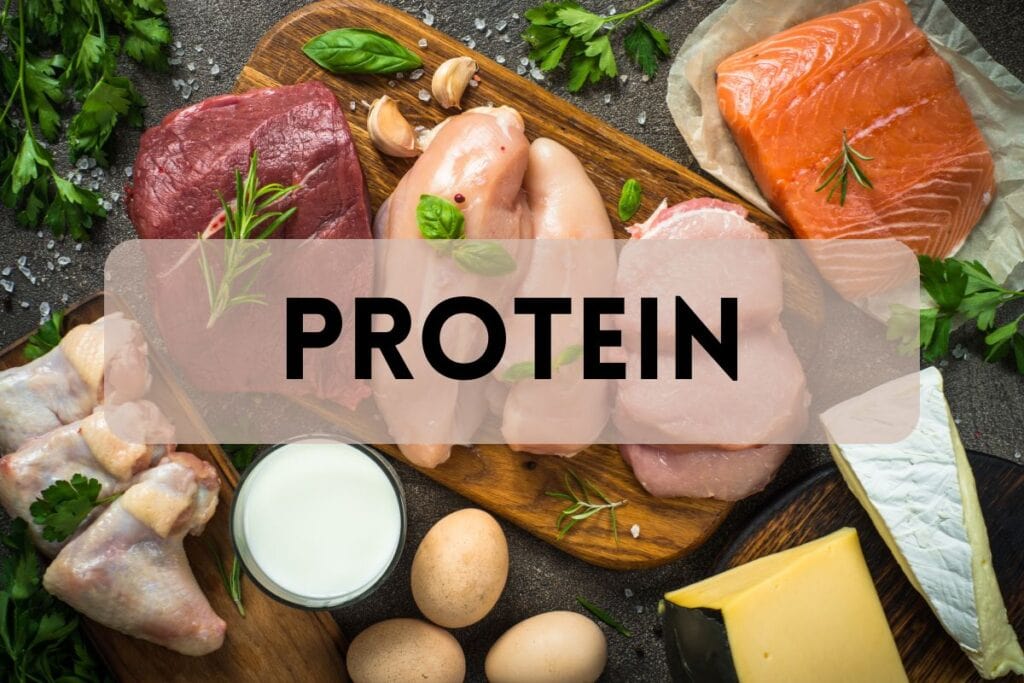
PROTEIN
Aim for 1 gram per pound of target body weight (or 2.2 grams per kg). This is a pretty challenging number to hit, but it’s a great daily goal.
Protein is essential for almost all bodily functions, from building and repairing muscle to supporting your immune system, regulating hormones, and facilitating all kinds of chemical reactions.
Excellent sources of healthy proteins include:
- Pasture-raised chicken
- Grass-fed beef
- Wild-caught salmon
- Pork
- Eggs
- Milk
- Plain Greek yogurt
- Kefir
- Cottage cheese
- Soybeans (edamame, tofu, tempeh, soy milk)
- Protein powders
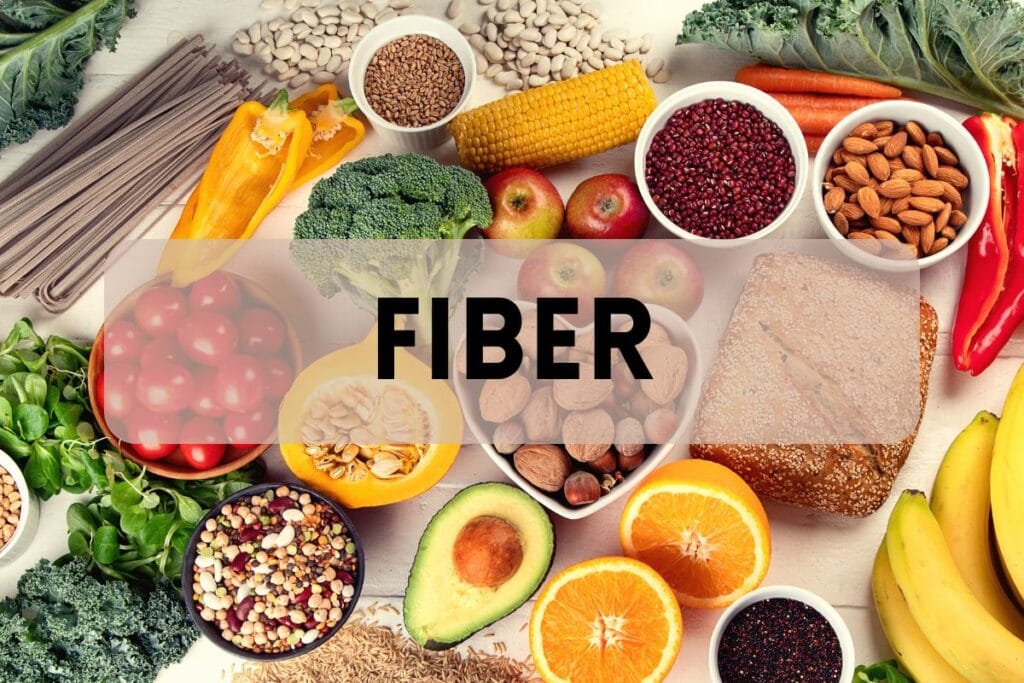
FIBER
Arguably the most ignored nutrient, fiber plays a crucial role in everyone’s overall health. Its benefits are numerous and supported by tons of evidence, including promoting a feeling of fullness, lowering LDL cholesterol, and reducing colon cancer risk.
Aim for at least 15 grams per 1,000 calories. On average, this means 30 grams per day for women and 38 grams per day for men.
Tons of foods contain significant amounts of soluble and/or insoluble fiber. Great sources of fiber include:
- Oatmeal
- Quinoa
- Beans
- Lentils
- Chickpeas
- Green peas
- Sweet potatoes
- Broccoli
- Brussels sprouts
- Avocados
- Berries
- Pears
- Apples
- Figs
- Nectarines
- Air-popped popcorn
- Chia seeds
- Flaxseeds
- Sunflower seeds
- Almonds

REFINED SUGAR
Abundant in countless processed foods, snacks, and beverages, refined sugar has very few health benefits—if any at all. Often its only purpose is making food more palatable, which means these foods are very easy to overeat.
Limit your intake of added sugars to 36 grams per day for men and 25 grams per day for women.
Avoiding refined sugars in your diet requires some diligent effort, simply because they’re so ubiquitous in modern-day processed foods.
I’d recommend opting for as many whole foods as possible and avoiding the following products (among many others):
- Sodas
- Sports and energy drinks
- Breakfast cereals
- Store-bought granola
- Granola bars
- Milk chocolate
- Ice cream
- Donuts
- Cookies
- Candy
- Pies
- White bread
- Baked goods
- Baked beans
- Canned fruits
- Flavored yogurt
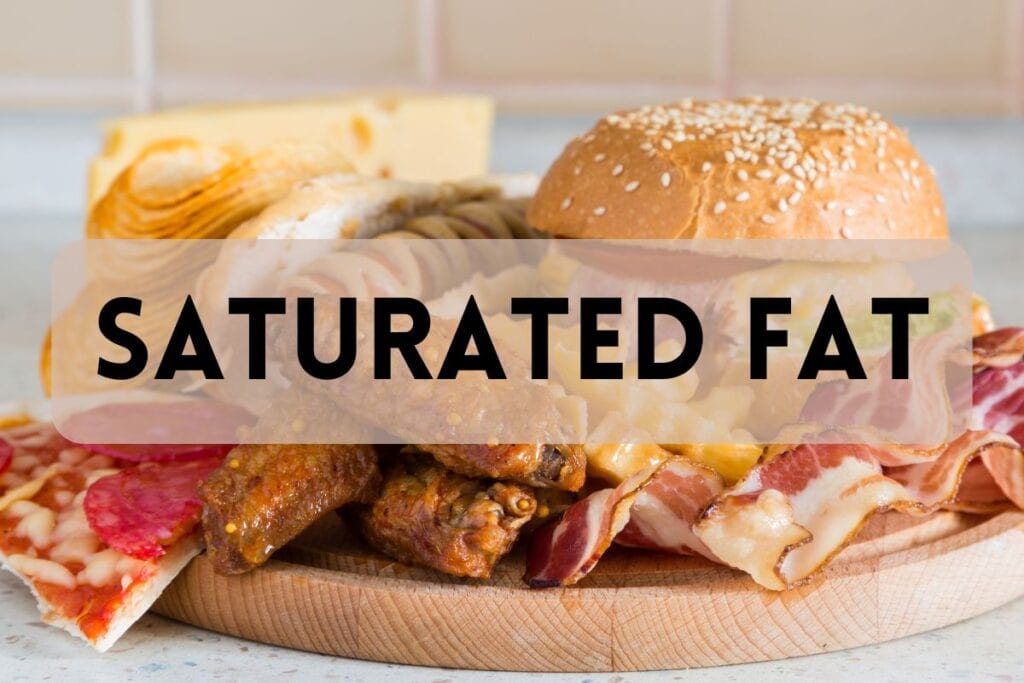
SATURATED FAT
Saturated fat has the potential to increase your LDL cholesterol. Also known as the “bad cholesterol,” LDL cholesterol can cause plaque buildup in arteries and may lead to the development of heart disease.
For the average man, it’s advised to consume under 28 grams of saturated fat per day. The average woman should eat less than 22 grams per day.
While there’s some debate about whether or not saturated fat is actually that bad for you, until there’s more clarity, I’d recommend erring on the side of caution and limiting your intake.
Use or consume the following foods sparingly:
- Butter
- Ghee
- Soft cheeses
- Heavy cream
- Whole-fat dairy
- Fried foods
- Coconut oil
- Cured meats
- Ice cream
- Desserts
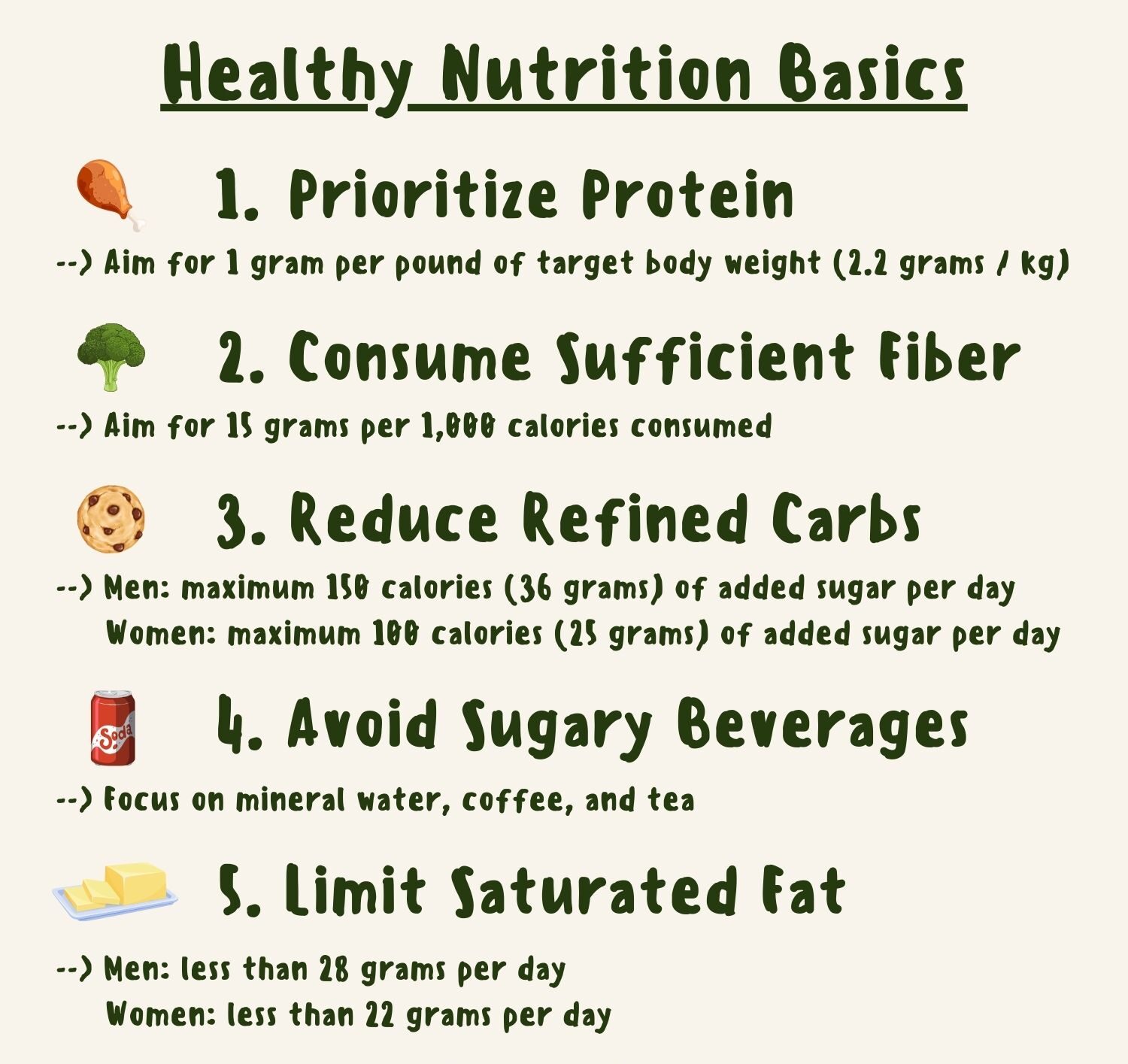
This all being said, if you’d like to make some positive changes to your diet, but don’t want to track all these things, I recommend tracking the first two: PROTEIN and FIBER.
Both these nutrients will help keep you full, therefore automatically reducing your consumption of other (bad or non-essential) nutrients.
Try to hit your protein target first and be mindful about adding more fiber to your diet—and you’ll have made a huge difference to your future health already!

